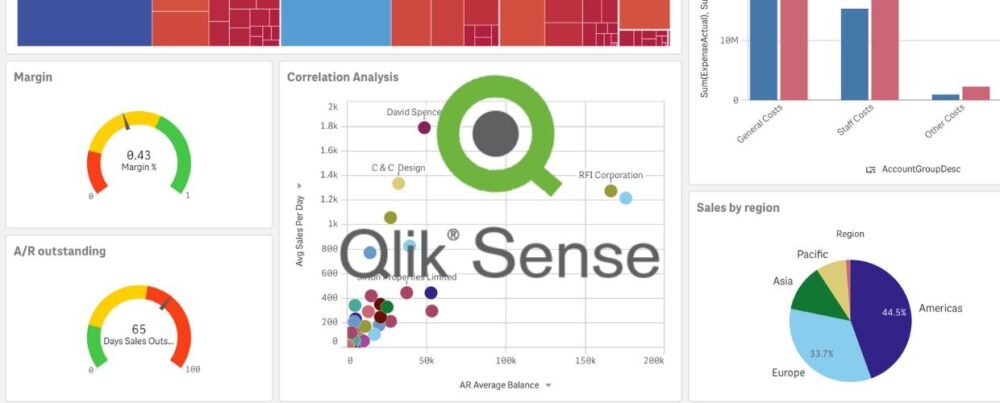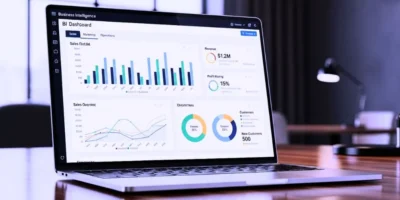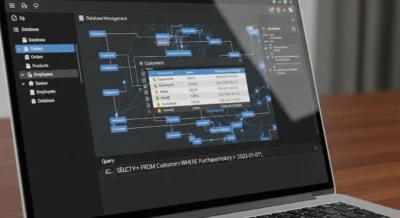In today’s data-driven world, organizations constantly seek innovative ways to extract valuable insights from their data. In this article, we will delve into the key features and benefits of Qlik Sense and explore how it empowers organizations to make data-driven decisions, drive innovation, and gain a competitive advantage.
What is Qlik Sense?
Qlik Sense, a leading business intelligence, and data visualization platform, has emerged as a game-changer. It is a powerful and versatile data visualization and business intelligence platform that enables users to explore, analyze, and visualize data user-friendly and intuitively.
With its intuitive interface, powerful analytics capabilities, and user-friendly design, Qlik Sense enables businesses to unlock the full potential of their data. It provides a self-service analytics environment where users can create interactive dashboards, reports, and visualizations without extensive technical expertise. Qlik Sense empowers users to uncover hidden insights and trends and make informed decisions based on data-driven evidence.
Recommendations and Ratings
EXPERT RECOMMENDATIONS
Overall
-
Easy-of-Use - 85
-
Feature and Functionality - 85
-
Customer Support - 80
-
Setup and Integration - 80
-
Value of Money - 80
User Review
4.35 (23 votes)Key Features and Functionality
Qlik Sense offers a range of features and functionalities that make it a preferred choice for organizations seeking effective data visualization and business intelligence solutions. Some of its features and functionality are discussed below.
Drag-and-Drop Interface
Qlik Sense boasts an intuitive and user-friendly interface that allows users to drag and drop data elements to create visualizations and build interactive dashboards effortlessly. The drag-and-drop interface helps the users build the environment as needed without enough technical knowledge.
Associative Data Model
Unlike traditional query-based systems, Qlik Sense’s associative data model enables users to navigate data dynamically. It promotes data exploration by allowing users to freely explore relationships and associations between different data points, uncovering hidden insights and driving discovery.
Powerful Data Analytics
The software solution provides robust analytics capabilities, including advanced calculations, aggregations, and data modeling. Users can perform complex calculations, create custom expressions, and apply statistical functions to derive meaningful insights from their data.
Interactive Visualizations
With Qlik Sense, users can create interactive and visually appealing charts, graphs, and maps to represent data meaningfully. These visualizations facilitate data exploration, improve comprehension, and enable users to tell compelling data stories.
Collaboration and Sharing
It allows users to collaborate and share insights with others in real-time. Users can create shared workspaces, collaborate on data analysis projects, and distribute dashboards and reports to stakeholders, fostering a culture of data-driven decision-making across the organization.
Mobile Accessibility
Qlik Sense offers mobile apps that enable users to access and interact with data visualizations on smartphones and tablets. It ensures that critical insights are available on the go, empowering users to make informed decisions anytime, anywhere.
Benefits for Organizations
Implementing Qlik Sense brings several benefits to organizations. Some of its benefits are given below.
Improved Decision-Making
The software solution enables organizations to make data-driven decisions by providing powerful analytics and visualizations. Its intuitive interface and associative data model allow users to uncover insights, identify trends, and better understand their data, leading to more informed and effective decision-making.
Enhanced Data Literacy
Qlik Sense promotes data literacy within organizations. It has a user-friendly interface, and interactive visualizations empower users across departments to explore data and gain insights without relying heavily on IT or data specialists. This democratization of data fosters a culture of self-service analytics and enables users at all levels to contribute to data-driven initiatives.
Increased Efficiency and Productivity
Qlik Sense’s drag-and-drop interface and self-service capabilities streamline the process of data analysis and visualization. Users can quickly create interactive dashboards and reports without extensive technical knowledge or programming skills, reducing the time and effort required to generate insights and improving overall productivity.
Better Collaboration and Communication
Qlik Sense’s collaborative features facilitate teamwork and data sharing across departments and teams. Users can collaborate in real-time, share insights, and engage in data-driven discussions, fostering collaboration and improving organizational communication.
Agility and Adaptability
Qlik Sense is a highly flexible and scalable platform that can accommodate the evolving needs of organizations. It integrates seamlessly with various data sources and supports various data formats. As organizations grow and their data requirements change, Qlik Sense can scale accordingly, ensuring that insights and analytics keep pace with organizational needs.
Competitive Advantage
By leveraging the power of data visualization and business intelligence, organizations gain a competitive edge in their respective industries. Qlik Sense enables businesses to spot trends, identify market opportunities, and respond to changes swiftly. It empowers organizations to stay ahead of the curve, drive innovation, and make data-driven strategies that lead to business success.
Conclusion
Qlik Sense revolutionizes data visualization and business intelligence by providing an intuitive and user-friendly platform that empowers organizations to unlock the true potential of their data. With its powerful analytics capabilities, interactive visualizations, and collaborative features, Qlik Sense enables users to explore data, gain valuable insights, and make informed decisions. By harnessing the power of data, organizations can drive innovation, improve efficiency, and gain a competitive advantage in today’s data-driven landscape.













